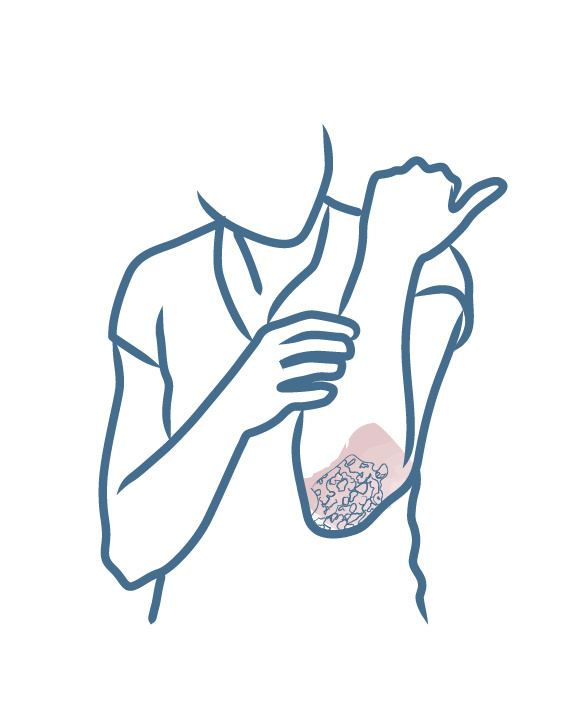-
Your concerns
Our articles to help you gain a better understanding
-
Our solutions
-
Ducray Dermatological laboratories
Our articles to help you gain a better understanding

As the name suggests, genital psoriasis affects the genital organs in men (glans psoriasis, foreskin psoriasis, etc.) and in women (vulva psoriasis, and psoriasis on the labia minora and the labia majora, etc.). This type of psoriasis can also affect the intergluteal skin fold and the anus. Genital psoriasis rarely occurs in isolation, it is most commonly associated with another form of psoriasis or another location, such as plaque psoriasis or inverse psoriasis, which affects the skin folds.

Summary
Visually, genital psoriasis develops in the form of red plaques with clearly defined borders. However, unlike plaque psoriasis, there are not usually any scales because of the moist environment. Nonetheless, itching is still a common symptom and most of the time it is very intense. It is difficult to scratch in public, at work or when out with friends if you have genital psoriasis.
Genital psoriasis is a relatively common form of psoriasis but it is rarely discussed, let alone with a doctor! However, the dermatologist should be your go-to contact, particularly to confirm the diagnosis. This is important because there are many other genital-related diseases such as fungal infections, for example. A clinical examination is generally sufficient to determine whether or not it is a case of genital psoriasis.
Genital psoriasis, like many other types of psoriasis, can have a major impact on quality of life, whether the patient is single or in a relationship. These "inconveniently positioned" lesions prevent the patient from fully experiencing their sexuality, because it is unsightly, it itches and because any friction aggravates the condition.
The treatment for genital psoriasis is the same as in plaque psoriasis, it mainly involves local creams and treatments, or in case of treatment failure, tablets or injections. Use mild cleansing products every day, and wear comfortable underwear.
Remember that psoriasis, whether on the genitals or elsewhere, is still not contagious. And don't be afraid to talk to your partner about it.
Psoriasis-prone skin

Skin prone to stubborn dry plaques
NEWSLETTER
Dermatological expertise
To better understand your skin and hair, discover our exclusive content and innovative care products designed to improve your quality of life..